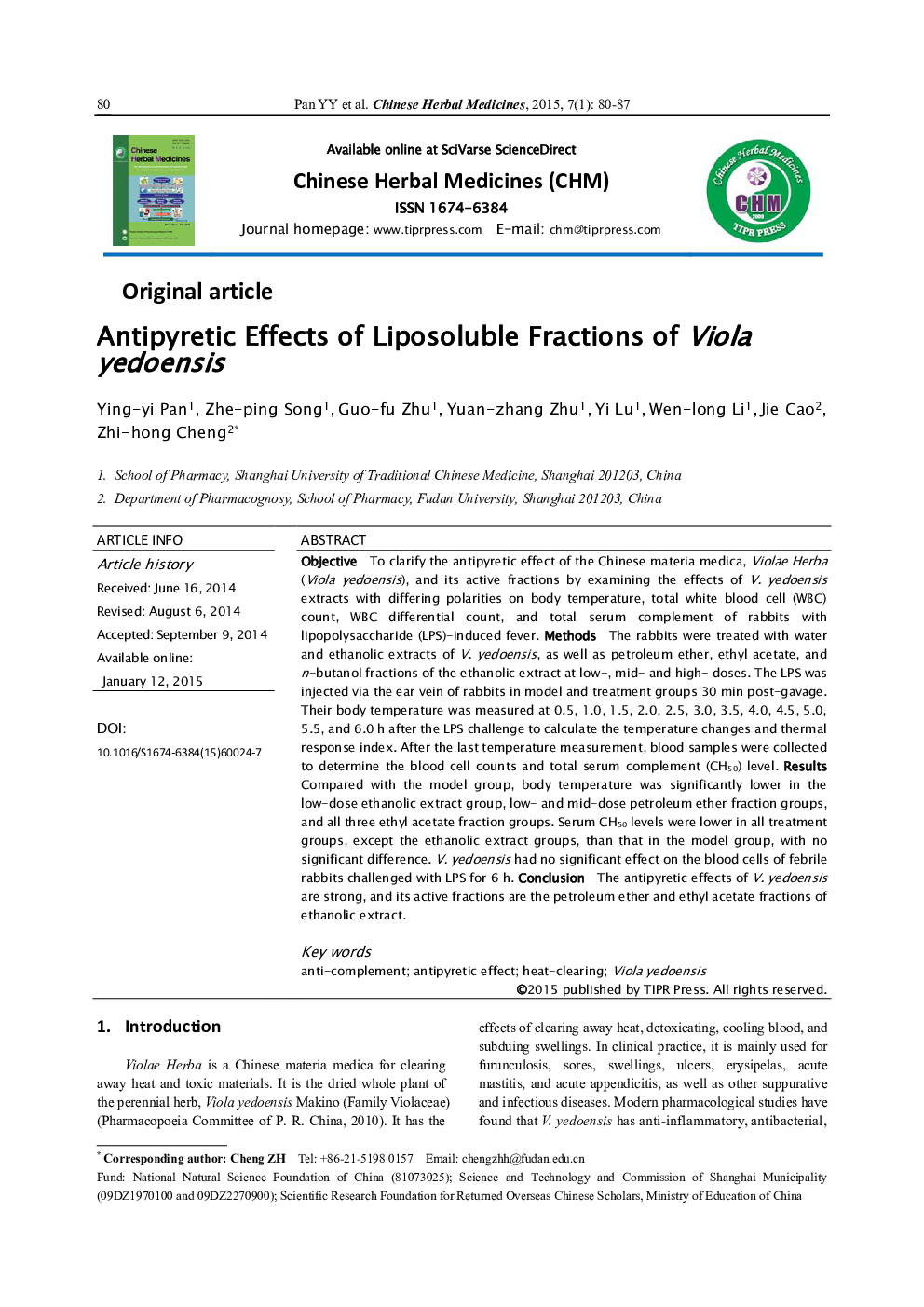| Article ID | Journal | Published Year | Pages | File Type |
|---|---|---|---|---|
| 3098058 | Chinese Herbal Medicines | 2015 | 8 Pages |
ObjectiveTo clarify the antipyretic effect of the Chinese materia medica, Violae Herba (Viola yedoensis), and its active fractions by examining the effects of V. yedoensis extracts with differing polarities on body temperature, total white blood cell (WBC) count, WBC differential count, and total serum complement of rabbits with lipopolysaccharide (LPS)-induced fever.MethodsThe rabbits were treated with water and ethanolic extracts of V. yedoensis, as well as petroleum ether, ethyl acetate, and n-butanol fractions of the ethanolic extract at low-, mid- and high- doses. The LPS was injected via the ear vein of rabbits in model and treatment groups 30 min post-gavage. Their body temperature was measured at 0.5, 1.0, 1.5, 2.0, 2.5, 3.0, 3.5, 4.0, 4.5, 5.0, 5.5, and 6.0 h after the LPS challenge to calculate the temperature changes and thermal response index. After the last temperature measurement, blood samples were collected to determine the blood cell counts and total serum complement (CH50) level.ResultsCompared with the model group, body temperature was significantly lower in the low-dose ethanolic extract group, low- and mid-dose petroleum ether fraction groups, and all three ethyl acetate fraction groups. Serum CH50 levels were lower in all treatment groups, except the ethanolic extract groups, than that in the model group, with no significant difference. V. yedoensis had no significant effect on the blood cells of febrile rabbits challenged with LPS for 6 h.ConclusionsThe antipyretic effects of V. yedoensis are strong, and its active fractions are the petroleum ether and ethyl acetate fractions of ethanolic extract.
